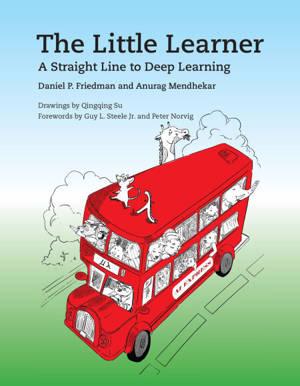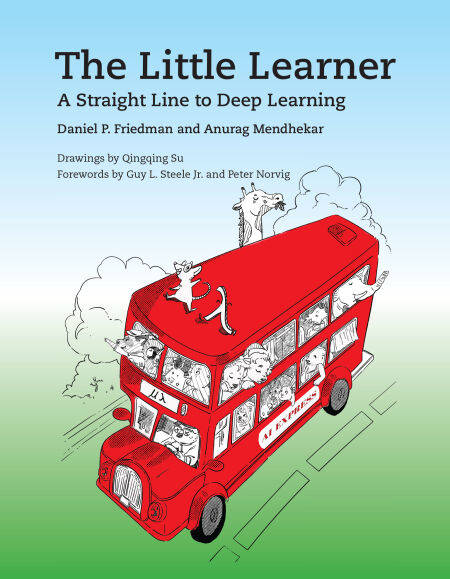
- Afhalen na 1 uur in een winkel met voorraad
- Gratis thuislevering in België vanaf € 30
- Ruim aanbod met 7 miljoen producten
- Afhalen na 1 uur in een winkel met voorraad
- Gratis thuislevering in België vanaf € 30
- Ruim aanbod met 7 miljoen producten
Zoeken
The Little Learner E-BOOK
A Straight Line to Deep Learning
Daniel P. Friedman, Anurag Mendhekar
E-book | Engels
€ 54,21
+ 54 punten
Uitvoering
Omschrijving
A highly accessible, step-by-step introduction to deep learning, written in an engaging, question-and-answer style.
The Little Learner introduces deep learning from the bottom up, inviting students to learn by doing. With the characteristic humor and Socratic approach of classroom favorites The Little Schemer and The Little Typer, this kindred text explains the workings of deep neural networks by constructing them incrementally from first principles using little programs that build on one another. Starting from scratch, the reader is led through a complete implementation of a substantial application: a recognizer for noisy Morse code signals. Example-driven and highly accessible, The Little Learner covers all of the concepts necessary to develop an intuitive understanding of the workings of deep neural networks, including tensors, extended operators, gradient descent algorithms, artificial neurons, dense networks, convolutional networks, residual networks, and automatic differentiation.
Conversational style, illustrations, and question-and-answer format make deep learning accessible and fun Incremental approach constructs advanced concepts from first principles Presents key ideas of machine learning using a small, manageable subset of the Scheme language Suitable for anyone with knowledge of high school math and some programming experience
The Little Learner introduces deep learning from the bottom up, inviting students to learn by doing. With the characteristic humor and Socratic approach of classroom favorites The Little Schemer and The Little Typer, this kindred text explains the workings of deep neural networks by constructing them incrementally from first principles using little programs that build on one another. Starting from scratch, the reader is led through a complete implementation of a substantial application: a recognizer for noisy Morse code signals. Example-driven and highly accessible, The Little Learner covers all of the concepts necessary to develop an intuitive understanding of the workings of deep neural networks, including tensors, extended operators, gradient descent algorithms, artificial neurons, dense networks, convolutional networks, residual networks, and automatic differentiation.
Conversational style, illustrations, and question-and-answer format make deep learning accessible and fun Incremental approach constructs advanced concepts from first principles Presents key ideas of machine learning using a small, manageable subset of the Scheme language Suitable for anyone with knowledge of high school math and some programming experience
Specificaties
Betrokkenen
- Auteur(s):
- Illustrator(s):
- Uitgeverij:
Inhoud
- Aantal bladzijden:
- 440
- Taal:
- Engels
Eigenschappen
- Productcode (EAN):
- 9780262375948
- Verschijningsdatum:
- 20/02/2023
- Uitvoering:
- E-book
- Beveiligd met:
- Adobe DRM
- Formaat:
- ePub

Alleen bij Standaard Boekhandel
+ 54 punten op je klantenkaart van Standaard Boekhandel
Beoordelingen
We publiceren alleen reviews die voldoen aan de voorwaarden voor reviews. Bekijk onze voorwaarden voor reviews.







